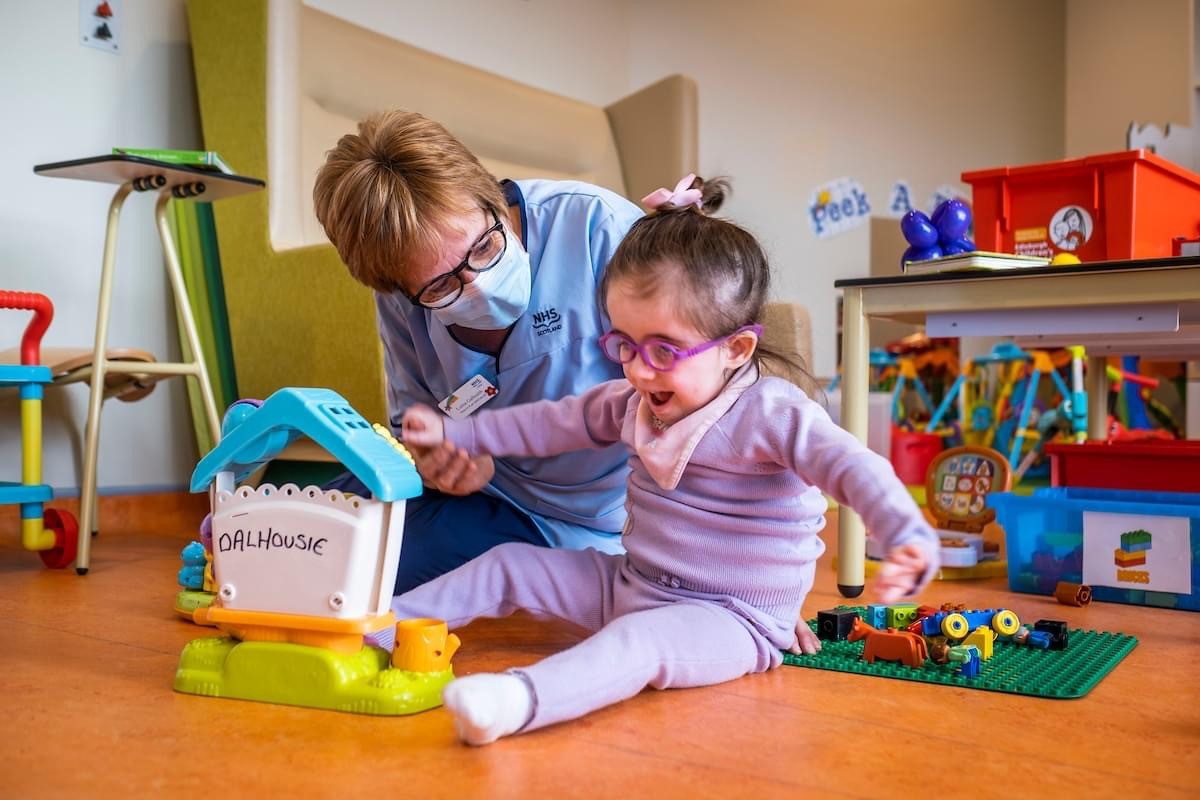Previous
Health play services
To become a health play specialist, you’ll need a foundation degree in Healthcare Play Specialism and experience working with children in a healthcare environment. You must also be registered with the Healthcare Play Specialist Education Trust (HPSET).
A health play specialist uses therapeutic play and recreational activities to support children, young people and families. Health play services are available to all families coming into the hospital for an inpatient stay or when visiting the emergency department or an outpatient clinic.
Therapeutic play and interactions can be used to:
Some health play specialists start their NHS careers as health play assistants. Others may have experience from volunteering in health play services.

School subjects that could lead to a career as a health play specialist include:
Speak to your guidance teacher or careers adviser about subjects offered at your school.

You may find it helpful to get some healthcare experience by doing a work placement or volunteering. You’ll get training, increase your knowledge, and learn new skills. This could help you when applying to college, university, or a new job with NHSScotland.
To become a health play specialist, you’ll need a foundation degree in Healthcare Play Specialism.
To secure a place on a foundation degree course, you’ll need National 5 English and Maths, or equivalent, and one of the following:
Search for college courses on My World of Work.
The foundation degree is offered at 4 colleges in the UK. They are:
Find out more about the foundation degree in Healthcare Play Specialism.
Once you complete the foundation degree, you'll register as a play specialist with the Healthcare Play Specialist Education Trust (HPSET). Some boards will consider evidence of continuing professional development as an alternative to HPSET registration.
If you’re returning to a career as a health play specialist, you can re-register if your membership has lapsed.
As a health play specialist, you’ll support children and their families and carers during hospital appointments and stays.
Typical tasks for a health play specialist include:
Provide normalising and developmental play activities for children and young people visiting hospital.
Mentor and supervise health play assistants and volunteers within the team.
Keep up to date with best practice within play techniques and monitor effectiveness in practice.
Provide and maintain age-appropriate play equipment and materials.
Respect patients’ individuality, values, cultural, and religious diversity to meet their care needs.
Work within the defined policies, procedures, standards and protocols.
Be proactive in keeping your knowledge and understanding of current research and best practice up to date.
Review and reflect on your practice through the effective use of clinical supervision and appraisal.
You'll need these skills:
Health play specialists usually work within a multidisciplinary team. You could work with:
You could work in:
As you develop in your NHS career and gain more experience you could become a senior health play specialist. Alternatively, you could train as:
Once you’ve qualified as a health play specialist, you'll register with the can also join the Healthcare Play Specialist Education Trust (HPSET). You can also join the National Association of Health Play Specialists (NAHPS).

We'll guide you through the recruitment process, from applying online to interview preparation.
Help with recruitment
Our blog includes how-to guides, case studies, and career resources.
Discover more